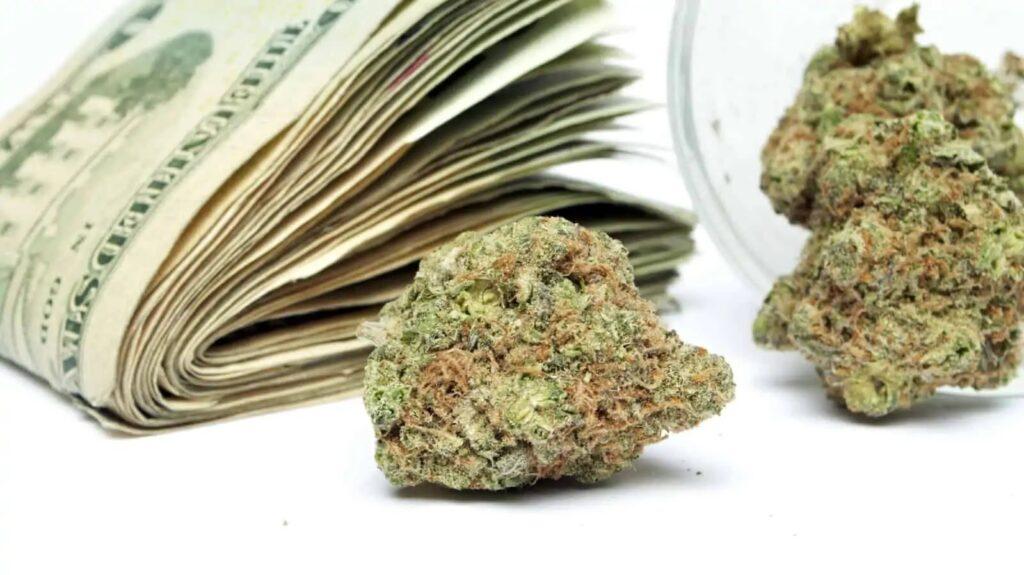According to an analysis, federal legislation to allow marijuana banking has a more than two-thirds chance of being enacted into law.
 The SAFER Banking Act (S.2860) would provide strong legal protections to banks and other financial institutions that provide services to state-legal marijuana businesses. The measure is sponsored by 35% of the entire US Senate, including having support from both Democrats and Republicans as well as all three senators who identify as independent. In September it received approval by the Senate Committee on Banking, Housing and Urban Affairs, with Senate Majority Leader Chuck Schumer saying November that the full Senate is “getting close” to a vote.
The SAFER Banking Act (S.2860) would provide strong legal protections to banks and other financial institutions that provide services to state-legal marijuana businesses. The measure is sponsored by 35% of the entire US Senate, including having support from both Democrats and Republicans as well as all three senators who identify as independent. In September it received approval by the Senate Committee on Banking, Housing and Urban Affairs, with Senate Majority Leader Chuck Schumer saying November that the full Senate is “getting close” to a vote.
According to an analysis by GovTrack.us, the SAFER Banking Act now has a 68% chance of being passed in the Senate and House, and signed into law by President Biden.
Launched in 2004, GovTrack is “one of the oldest government transparency websites in the world.” The site is a project of Civic Impulse, LLC, a completely independent entity which is wholly owned by its operator and receives no funding in any form from outside organizations or political parties.
“GovTrack computes a prognosis for each bill, which is the probability that the bill will be enacted”, explains the organization on its website. “Our computation is based on factors that are correlated with successful or failed bills in the past, such as whether the sponsor is a committee chair.”
The data that goes into the analysis “are factors that we compute for bills, such as whether the sponsor is a committee chair (see right for a full list), and whether the bill was successful. We “train” the model on bills from the 117th Congress (2021-2023) to compute probabilities for bills in the current Congress.”
Below is the full methodology used for the analysis:
This analysis is based on a logistic regression. Logistic regression is similar to simple linear regression but it is more appropriate when modeling probabilities. We create eight separate models: For each of the four types of legislative measures (bills, joint resolutions, concurrent resolutions, and simple resolutions), we compute one model that predicts whether the bill/resolution will get out of committee and a separate model that computes, for bills/resolutions out of committee, whether the bill/resolution will be enacted or agreed to.
The independent variables are the binary factors mentioned above and listed in the factors table at the right.
The dependent variable is how successful the bill or resolution was. When predicting whether a bill or resolution will make it out of committee, it is a binary variable. When predicting whether a bill will be enacted or a resolution agreed to, this is a continuous variable computed as the percentage of paragraphs in the bill that appear in any enacted bill (and similarly for resolutions). We do this because there are often identical bills in Congress (so-called companion bills) and often bills are incorporated into other bills (such as omnibus bills), and we want to give the original bills credit for being successful even if the original bill itself is not enacted per se.
The output of the logistic regression models are weights assigned to the factors, called β in the table at the right. The prognosis score for a bill is computed by multiplying all of the factors together that apply to the bill (more or less, see logistic regression on Wikipedia for details). The result is a number that can be interpreted as a probability.
In choosing the factors for model, we select from a large set of plausible factors those which appear to be statistically significant on their own (using a binomial distribution). After the logistic regression, we remove factors that appear statistically non-significant and re-compute the model.

